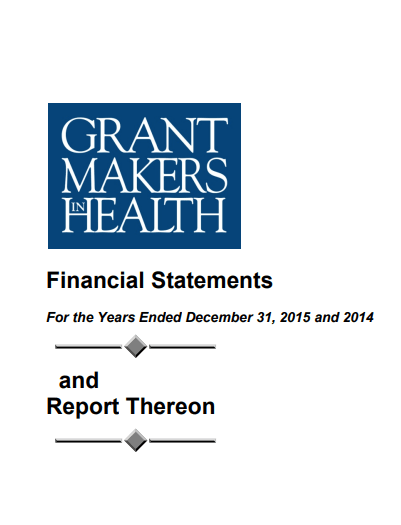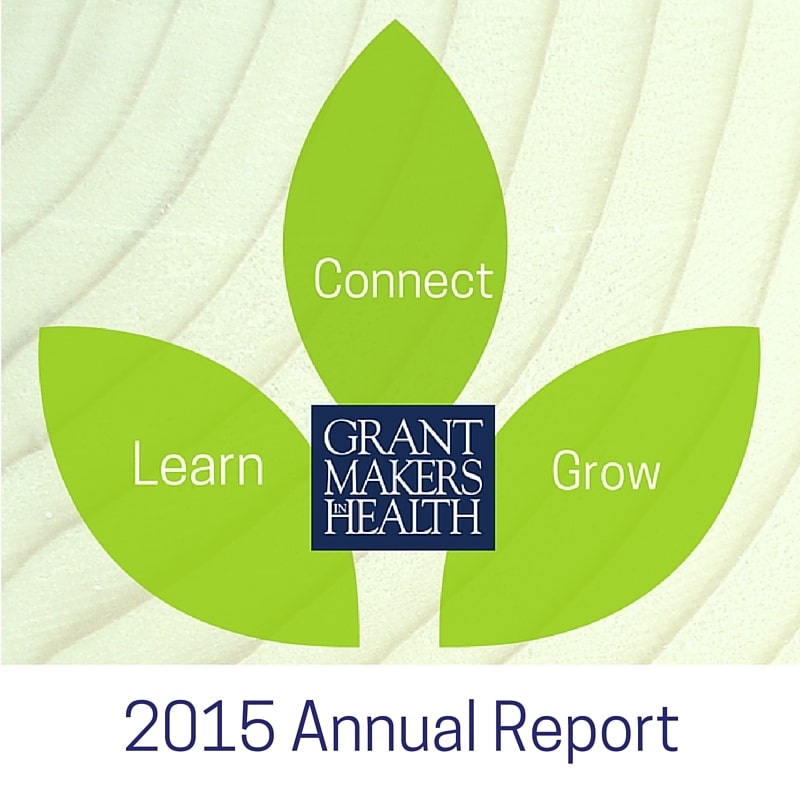Policy Engagement by Local Health Funders
Policies made at the local level have a tremendous influence on people’s health. Our new publication explores how health funders inform and influence local policy decisions that play a critical role in shaping community health and well-being.
GIH Bulletin: August 2016
In case you’ve missed the news, we have a new location and date for the 2017 GIH annual conference. We’ll be in Boston, Massachusetts June 21-23, 2017.
Annual Report 2015 (Financial Statements)
In 2015, Grantmakers In Health (GIH) offered a diverse range of meetings, publications, and webinars, all aimed to advance the field of health philanthropy. We invite you to read about our accomplishments, which were made possible thanks to the generous support of our Funding Partners.
Annual Report 2015
In 2015, Grantmakers In Health (GIH) offered a diverse range of meetings, publications, and webinars, all aimed to advance the field of health philanthropy. We invite you to read about our accomplishments, which were made possible thanks to the generous support of our Funding Partners.
GIH Bulletin: July 2016
Welcome to the new all-digital Bulletin! This issue is special for us in that it marks our transition from a printed newsletter to one that is housed entirely on our website.
GIH Bulletin: June 2016
In May, GIH’s board decided to relocate the 2017 Annual Conference on Health Philanthropy from Charlotte, North Carolina, to another city. The decision was sparked by the controversy surrounding the Public Facilities Privacy and Security Act (HB2), North Carolina’s new state law.
GIH Bulletin: May 2016
This year’s annual conference was the largest one ever—which we are happy about—but it is the story behind the numbers that resonate the most with me. Three of my top takeaways are:
GIH Bulletin: April 2016
Leila May Polintan, 39, was GIH’s Communications Director from 2007 to 2016. Sadly, we lost her on Saturday, April 2 after a courageous 3½-year battle with breast cancer. Leila had a large footprint at GIH: she designed and managed our electronic communications, oversaw the monthly Bulletin and annual conference materials, and wrote our style guide
Charting a New Course: Roadblocks, Breakthroughs, and Discoveries
Each year, GIH asks health funders to share their thoughts on our annual conference theme. This year’s authors wrote essays about what it means to chart a new course in health philanthropy.


